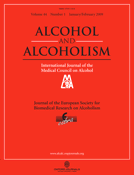The present study analyzed the association between weekend ethanol and high-sucrose diet on oxygen consumption, lipid profile, oxidative stress and hepatic energy metabolism.
Because resveratrol (RS, 3,5,4'-trans-trihydroxystilbene) has been implicated as a modulator of alcohol-independent cardiovascular protection attributed to red wine, we also determined whether RS could change the damage done by this lifestyle.
Male Wistar 24 rats receiving standard chow were divided into four groups (n = 6/group): (C) water throughout the experimental period; (E) 30% ethanol 3 days/week, water 4 days/week; (ES) a mixture of 30% ethanol and 30% sucrose 3 days/week, drinking 30% sucrose 4 days/week; (ESR) 30% ethanol and 30% sucrose containing 6 mg/l RS 3 days/week, drinking 30% sucrose 4 days/week.
After 70 days the body weight was highest in ESR rats. E rats had higher energy expenditure (resting metabolic rate), oxygen consumption (VO2), fat oxidation, serum triacylglycerol (TG) and very low-density lipoprotein (VLDL) than C. ES rats normalized calorimetric parameters and enhanced carbohydrate oxidation.
ESR ameliorated calorimetric parameters, reduced TG, VLDL and lipid hydroperoxide/total antioxidant substances, as well enhanced high-density lipoprotein (HDL) and HDL/TG ratio. Hepatic hydroxyacyl coenzyme-A dehydrogenase (OHADH)/citrate synthase ratio was lower in E and ES rats than in C. OHADH was highest in ESR rats.
The present study brought new insights on weekend alcohol consumption, demonstrating for the first time, that this pattern of ethanol exposure induced dyslipidemic profile, calorimetric and hepatic metabolic changes which resemble that of the alcoholism. No synergistic effects were found with weekend ethanol and high-sucrose intake.
RS was advantageous in weekend drinking and high-sucrose intake condition ameliorating hepatic metabolism and improving risk factors for cardiovascular damage.
Request Reprint E-Mail: drno@uol.com.br
